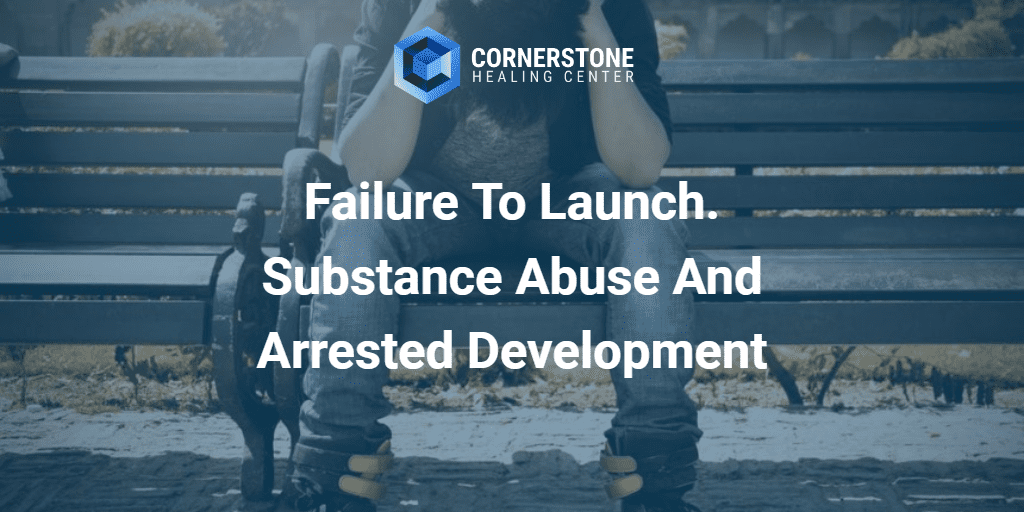Growing up is hard, and the journey from teenager to adult is big. It’s a time when you’re supposed to become more independent and mature, but for many young people, this process gets stuck.
We call this “Failure to Launch.” In today’s world, without the traditional milestones that marked this transition in the past, many young adults struggle to find their way. Substance abuse can make this process even harder, causing “arrested development.”
Now, with fentanyl addictions on the rise and other dangerous drugs, experimentation is not just hindering development; it’s causing immediate and early death. Let’s discuss the role of substance abuse in arrested development and the dire consequences it can have on a young person’s life.
Substance Abuse and Brain Development
Laying the Groundwork for Lasting Recovery
Deep breathing is a simple yet effective coping strategy that involves taking slow, deep breaths to promote relaxation and reduce stress. It can be practiced anywhere, anytime, to help calm the mind and body.
The practice of being fully present and aware of one’s thoughts, feelings, and surroundings without judgment. Mindfulness can help young adults better manage stress, anxiety, and cravings by promoting a sense of inner peace and clarity.
Writing down thoughts, feelings, and experiences can be a powerful tool for self-reflection and emotional processing. Journaling can help young adults gain insight into their emotions, identify triggers, and track their progress in recovery.
Emotional Regulation is the healthy and appropriate management of emotions. Treatment should focus on teaching young adults strategies for identifying, expressing, and coping with their emotions through therapy, role-playing, and group discussions.
Positive Affirmations are positive statements that can be repeated to help build self-esteem and counter negative self-talk. Examples include “I am worthy of love and respect” or “I have the strength to overcome any challenge.”
Learning practical budgeting, cooking, and household management skills can help young adults develop independence and self-sufficiency. Treatment programs should incorporate life skills training to prepare young adults for the challenges of everyday life in recovery.
These strategies and skills are essential for young adults in recovery, as they lay the foundation for lasting success and personal growth. By developing healthy coping mechanisms, emotional intelligence, self-esteem, and practical life skills, young adults can better navigate recovery challenges and build a fulfilling, independent life. Incorporating these elements into treatment plans and daily routines can help young adults develop resilience, self-awareness, and the confidence to maintain sobriety and achieve their goals. With the right tools and support, young adults can overcome the obstacles of substance abuse and arrested development and embark on a path toward a brighter, more promising future.
A Multi-Faceted Approach to Treatment
Overcoming substance abuse and arrested development requires a comprehensive, individualized approach to treatment. By addressing the unique needs of each young adult and incorporating a range of therapeutic modalities, co-occurring disorder treatment, life skills training, and ongoing support, treatment programs can provide the foundation for lasting recovery and personal growth.
Tailored Therapy Modalities
A well-rounded treatment approach, tailored to the individual’s unique needs, is key for long-term success and lasting recovery. Effective treatment modalities may include Cognitive-Behavioral Therapy (CBT) to identify and change negative thought patterns, Motivational Interviewing to explore motivations for change, and Group Therapy to provide a sense of community and support.
Addressing Co-Occurring Disorders
Many young adults struggling with substance abuse also face co-occurring mental health disorders, such as depression or anxiety. Integrated treatment plans that combine substance abuse treatment with mental health care can lead to better outcomes and a higher likelihood of sustained recovery.
Empowering Through Education and Life Skills
Substance abuse often derails a young adult’s educational and career aspirations. Treatment programs should include life skills training and educational support to help them get back on track. This may involve GED preparation, job skills training, financial literacy workshops, and communication skills development. By providing young adults with the tools and knowledge necessary to succeed in their personal and professional lives, treatment programs can help them build a strong foundation for a fulfilling future.
Ongoing Support and Aftercare
Recovery is an ongoing process that extends beyond the initial treatment period. Aftercare programs, such as sober living homes, outpatient therapy, and peer support groups, can provide the ongoing structure and accountability necessary to maintain sobriety and continue personal growth. By offering continued support and guidance, young adults can develop the resilience and tools necessary to lead fulfilling, independent lives in recovery.
Quick Tip
The Challenge of Adulting
For young adults facing arrested development, “adulting” – the process of taking on adult responsibilities – can be tough. They might struggle with things like:
- Managing money and budgeting
- Living on their own and taking care of a household
- Building a career and keeping a stable job
- Forming healthy relationships and social skills
The challenges of adulting can be overwhelming and lead to feelings of anxiety and being unprepared for the demands of adult life.
So What is Arrested Development, Really?
What does "arrested development" mean?
What are some signs of arrested development in young adults?
Some common signs include:
- Struggling with decision-making
- Acting impulsively
- Having a hard time dealing with stress and challenges
- Difficulty managing money and holding down a job
- Trouble forming and maintaining healthy relationships
How does substance abuse contribute to arrested development?
Substance abuse can delay emotional growth and keep someone stuck in arrested development. Using drugs or alcohol can get in the way of developing normal emotional control and coping skills, making it harder to mature and take on adult roles.
Is it possible for arrested development to be treated?
Yes, people can overcome arrested development with the right support and treatment. This often involves addressing the underlying substance abuse issue, learning healthy coping strategies, building life skills, and getting support from family, friends, and professionals.
Is it ever too late to address arrested development?
No, there is always time to start the journey towards emotional and social growth. While it may take time and effort, anyone can learn the skills needed to lead a fulfilling adult life, no matter their age or past struggles with substance abuse and arrested development.
The Importance of Family Involvement
Family involvement is essential in a young adult’s recovery journey and transition to adulthood. By actively engaging in the recovery process and seeking support for themselves, family members can create a strong foundation for their loved one’s long-term success and well-being.
Get Help for Substance Abuse at Cornerstone
We offer a wide range of treatment for mental health and substance abuse conditions. Begin your journey to recovery today!
Family Therapy: A Path to Healing
Family therapy sessions can help improve communication, rebuild trust, and create a more supportive home environment. Therapy can also help family members understand the nature of addiction and develop strategies for supporting their loved one’s recovery.
Support Groups: Finding Strength in Shared Experiences
Joining a support group, such as Al-Anon or Nar-Anon, can provide family members with a safe space to share their experiences, learn from others, and find emotional support. These groups can help families feel less isolated and more empowered to cope with the challenges of supporting a loved one in recovery.
Empowering Families for the Recovery Journey
Attending educational workshops on addiction, recovery, and family dynamics can help family members better understand the recovery process and their role in supporting their loved ones. These workshops can also provide practical tools and strategies for setting boundaries, practicing self-care, and promoting a healthy family environment.
Building a Supportive Community
A supportive community plays a significant role in a young adult’s recovery and journey towards responsible adulthood. By surrounding themselves with positive influences, engaging in sober activities, and accessing resources and support groups, young adults can build a strong foundation for lasting recovery and personal growth.
12-Step Programs and Peer Support: Strength in Numbers
Participating in programs like Alcoholics Anonymous (AA) or Narcotics Anonymous (NA) can provide young adults with a structured, supportive environment to share their experiences, learn from others, and maintain accountability in their recovery. Peer support groups can also help foster a sense of camaraderie and belonging among individuals facing similar challenges.
Sober Living and Transitional Housing: A Foundation for Growth
Sober living homes and transitional housing programs offer young adults in early recovery a structured, substance-free environment. These living arrangements provide a supportive community and access to job training, educational support, and life skills development.
Engaging in Sober Activities: Rediscovering Joy and Purpose
A Brighter Future Awaits: Your Journey to Recovery and Growth
Substance abuse can have a profound impact on a young adult’s development, making the already challenging journey to adulthood even more difficult. However, by addressing the underlying issues of arrested development and seeking comprehensive support and treatment, young adults can overcome the obstacles associated with substance abuse and acquire the skills necessary for a successful and fulfilling adult life.
It’s important to remember that you don’t have to face this journey alone. Seeking support and guidance is a sign of strength, not weakness. Recovery requires courage, determination, and a willingness to accept help from others. By surrounding yourself with a supportive network of family, friends, and professionals, you can create a solid foundation for your recovery and personal growth.
There will be challenges and setbacks throughout your journey, but these experiences serve as opportunities for learning and growth. Embrace the process, celebrate your successes, and be kind to yourself when faced with difficulties. Remember that recovery is not a straight line but a winding path filled with ups and downs. What matters most is that you keep moving forward, one step at a time.
With the right tools, resources, and support systems in place, you have the power to break free from the cycle of substance abuse and create a life filled with purpose, joy, and endless possibilities. Your future is bright, and your potential is limitless. Believe in yourself, trust the process, and never give up on your dreams. On the other side of recovery, a world of opportunity awaits you, and you have the strength to make it a reality.
Key Takeaways
- Key Takeaways
- Substance abuse can significantly hinder a young adult's development, leading to arrested development and difficulty transitioning into adulthood.
- Comprehensive treatment approaches tailored to individual needs and addressing co-occurring disorders are essential for long-term recovery and personal growth.
- Family involvement, including therapy, support groups, and education, is crucial in supporting a young adult's recovery journey.
- Building a supportive community through 12-step programs, sober living arrangements, and engaging in sober activities is vital for maintaining sobriety and fostering personal growth.










